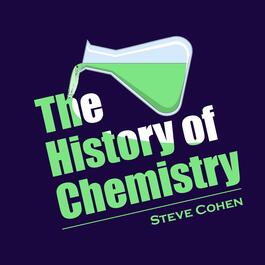
The History of Chemistry
Chemistry is everywhere, and involves everything. But how did chemistry get to be what it is? I'm Steve Cohen, a chemist and writer, bringing you The History of Chemistry. This podcast explores the development of chemistry from prehistoric times to the present, including the people and societies who made chemistry what it is today. The History of Chemistry is for you, whether you hated chemistry in high school, or got a PhD in inorganic chemistry. We'll explore how chemistry affected art, music, language, politics and vice-versa. Whether it's ancient Greek philosophers, medieval alchemists, or modern laboratory apparatus, it's all here. Don't forget to support my series at https://www.patreon.com/thehistoryofchemistry !
Show episodes
I conclude this series, touching on why I ran this podcast. I give eleven overarching goals for the podcast. I also go far back into my own past, and an event which eventually led to me speaking to you about chemistry. Finally I send you off with an announcement about a national award I will accept in 2026. Please cont
I give a brief history of finding planets around other stars, including discovery by gravitational wobbling, dimming as the planet crosses in front of its star, and even seeing an actual planetary image by blocking the star"s glare. I discuss what sort of spectroscopic signals might be present for life in a planet"s at
We take an imaginary trip around our Solar System to hear the history of chemical attempts to find life, starting in the late 1950s. Among our stops on the tour include Venus, Mars, Europa, and Titan. Included in the tour are temperature measurements, spectroscopic views, gas chromatography, radioactive labeling, photo
In which we bring research into molecular machines up to date. We discuss fuels, specifically what chemists think are the best kinds of fuels to power these little molecules. We discuss what makes a molecular machine different from a regular-sized machine. We also talk about molecular machines as a subset of "molecular
Instead of just digging in the ground to extract minerals, over the past half-century scientists have begun to explore agriculture of hyperaccumulating plants to pull elements--including heavy metals--out of the topsoil. We explore the recent history of this topic, its advantages and pitfalls. Support the show Support
The History of Chemistry is itself an academic discipline, and in this episode we explore the history of chemical history. We start with chemist Thomas Thomson, and work our way forward in time, through the various books on the subject, the founding of the History of Chemistry Section of the American Chemical Society,